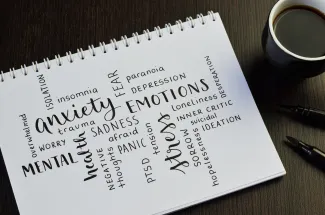
How do allergies affect your mood?
Click play to listen to this article.
(Michigan News Connection) Michigan researchers are examining a possible link between high pollen counts or allergy days and worsening mental health and increased suicide risk.
The idea is that allergies act as a stressor that disturbs sleep and causes irritability, contributing to poor judgment and, in some cases, mental health crises. The study examines emergency department visits and suicides on high pollen days.
Dr. Shooshan Danagoulian, associate professor of economics in Wayne State University's College of Liberal Arts and Sciences, said climate change is increasing allergy-season length and intensity, which could be contributing to rising mental-health issues.

"When I have allergies, I tend to be more irritable, more sluggish and tend not to make good judgments," she said. "So, I wanted to find out if this affects behaviors more widely."
And it's worth a closer look. More than 47,000 people took their own lives, and more than 300,000 were treated in emergency rooms for self-harm injuries in 2018 alone. Those numbers are part of a trend that has been increasing for a decade, according to the Centers for Disease Control and Prevention.
The American Foundation for Suicide Prevention has awarded a two-year, $125,000 grant to Wayne State to study these "Seasonal Allergy Blues."
Other than the itchy, watery eyes and sneezing that allergy sufferers are well aware of, Danagoulian said, pollen is also known to cause reduced quality of sleep, daytime drowsiness and reduced cognitive ability - all known factors in the risk of suicide.
"We are not saying that high pollen makes us want to take our own life," she said. "Instead, it's the idea of having a persistent feeling of being unwell - and it accumulates over time until a particularly high-pollen day can just tip you over the edge."
She said more than 25 percent of American adults deal with seasonal allergies, and said it's particularly important to seek treatment in rural areas where there are more trees. She added that a second contributing factor in Michigan is the shortage of mental-health practitioners.
If you or someone you know is in crisis, reach out to the Suicide and Crisis Lifeline at 988.
















